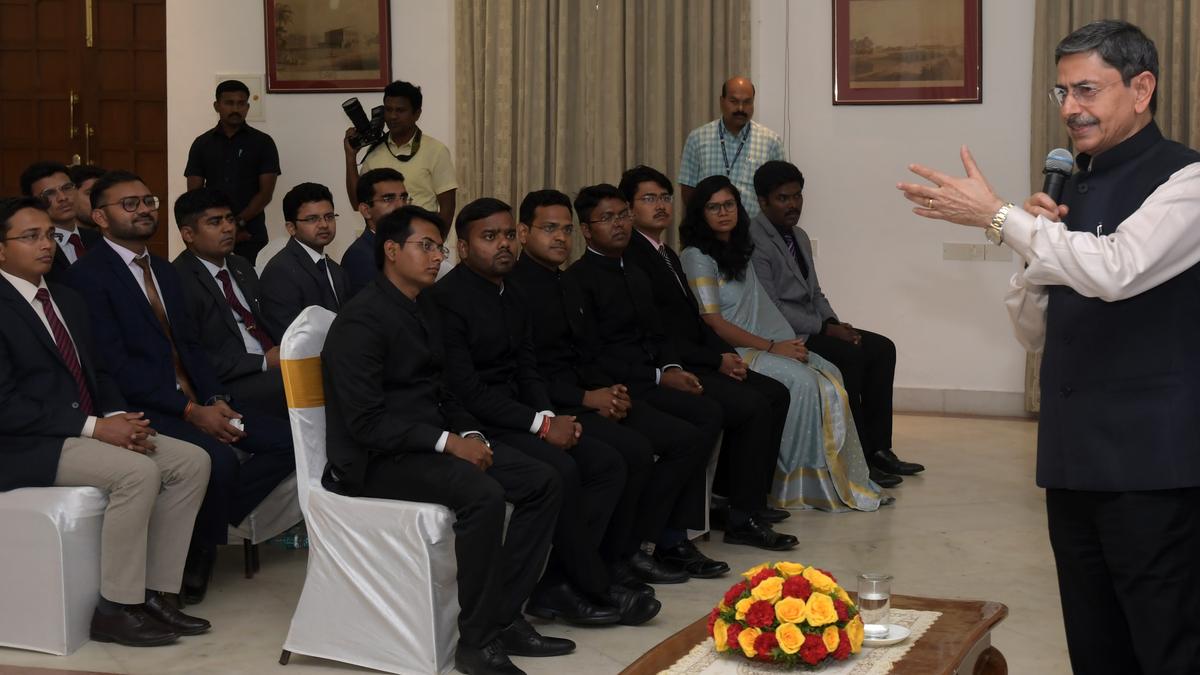
Wrong British narrative of Nagas being different is the reason for conflict, says R.N. Ravi
The Hindu
In an interaction with IAS trainees here, the Governor said, after he took charge as interlocutor of Naga peace talks, he gave a clear message that the narrative of Nagaland not being a part of India was unacceptable
Governor R.N. Ravi said that the wrong narrative created by the British that the people of Nagaland were different and did not belong to India was at the core of the prolonged conflict in the State.
He was responding to a question during an interaction with a group of IAS trainees here about his role as the interlocutor for the Naga peace talks between 2014 and 2021.
Realising that this British-created narrative, followed later even by the Government of India, was wrong, he gave a clear message after taking charge as the interlocutor to the negotiating groups that the narrative of Nagaland not being a part of India was unacceptable. One of the first things he did was to make Delhi the venue for talks, which happened until then in other countries as part of an earlier agreement. He said they were “globetrotting” at the expense of Government of India. Similarly, the government refused to be “blackmailed” that the talks could be held with only one group.
Mr. Ravi said he told them that they had to accept that Nagaland was part of India and a solution should be reached within India’s Constitutional framework while some special [privileges] could be considered by amending the Constitution.
Recalling a public meeting he attended in Nagaland after taking charge as interlocutor, he told the people there two things. One was that the Government of India must accept that Nagas had to be won over by love and not by military action and the second was that the Nagas must accept that they could not drive India out of Nagaland. Stating that the Naga people liked clarity and plain speaking, he said they came around even though they were initially unhappy.
He blamed the British for creating a divide between the plains and the hills in the northeast and between the northeast and the rest of India. Stating that the British control over Bengal disconnected the traditional ties between the northeast and rest of the country, he said it was worsened by the Inner Line Permit (ILP) introduced in 1873. He said the ILP was introduced in the backdrop of an American Baptist writing to the then Bengal Governor about his inability to reach the hills to take the gospel.
Arguing that the British narrative continued even later, he said one would be shocked by the communication between the Prime Minister and the Chief Minister of Assam in the 1950s in which the former advised the latter to be “slow” and “sensitive” as the people there were “different”. He said this led to the country’s response being one of appeasement.













